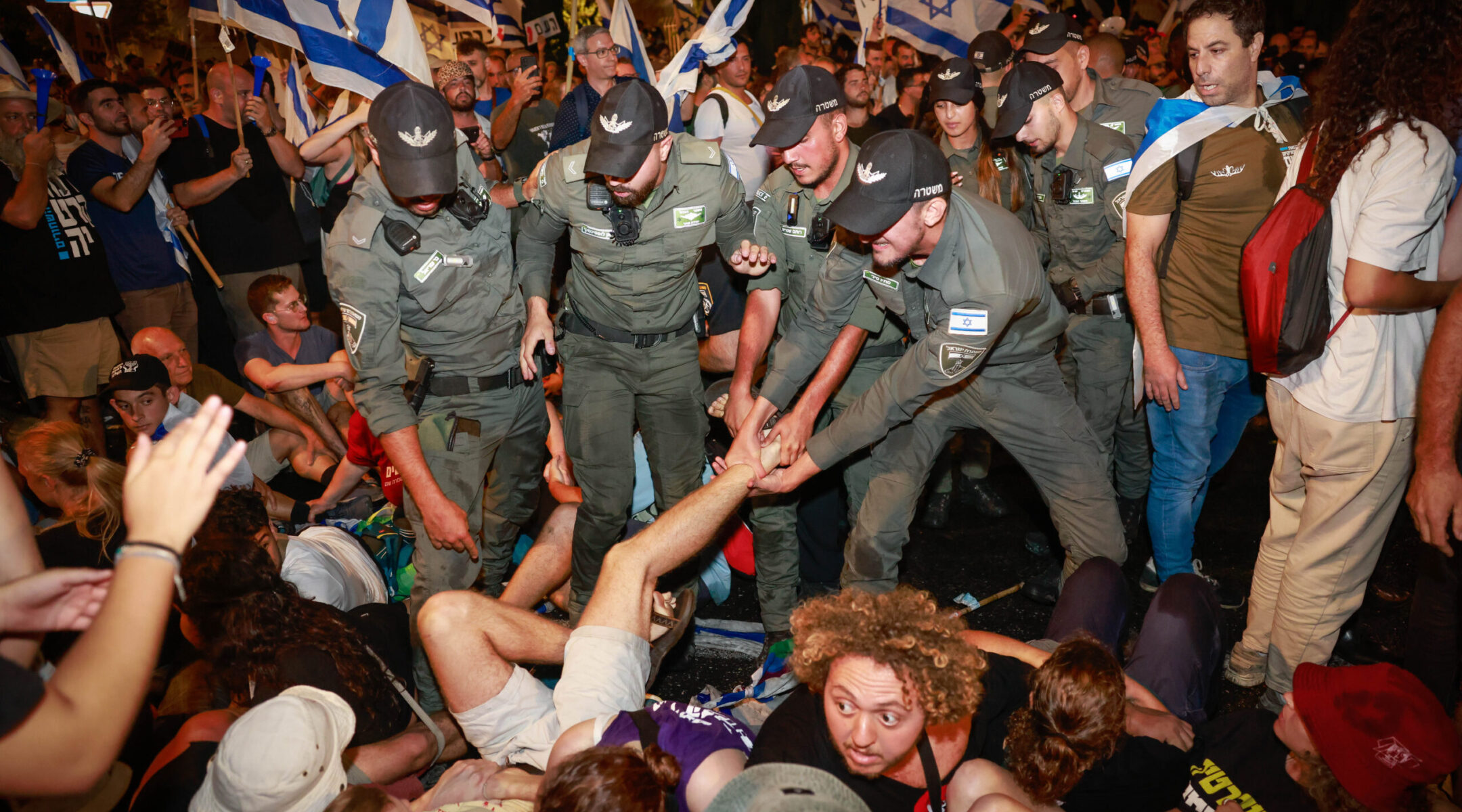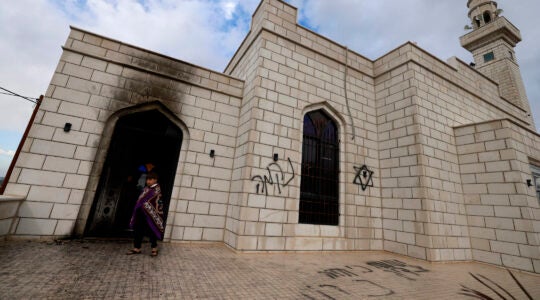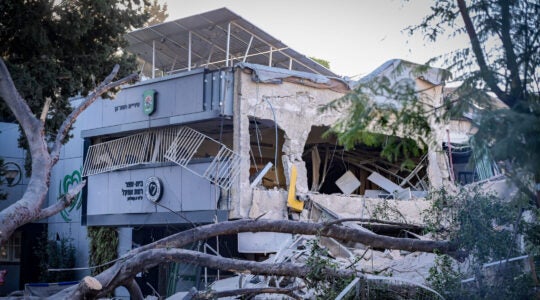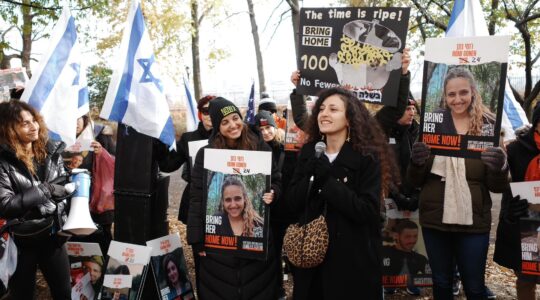(JTA) — A major highway was blocked until 1 a.m., protesters were hosed down and arrested, Israelis woke up to see their newspapers shrouded in black, doctors are on strike and the shekel lost value — all in response to the Knesset’s vote to weaken Israel’s Supreme Court.
The legislation passed by Israel’s right-wing government on Monday barred the court from striking down laws it deems “unreasonable,” and has been characterized by both supporters and opponents as the first piece of a larger plan to sap the Supreme Court’s power and influence. That overhaul sparked an ongoing protest movement that has seen hundreds of thousands of Israelis take to the streets.
Those protests continued Monday night, with large crowds gathering in Jerusalem and Tel Aviv. In both places, police took forceful measures to disperse the demonstrations, which blocked major highways in both cities. In Jerusalem, police officers sprayed skunk water at the protesters while in Tel Aviv, where the highway was blocked with barricades and bonfires into the early morning, they used water cannons and mounted police to clear the crowd.
Dozens of protesters were arrested and several were injured, including three who were hit by a car that drove through a crowd of protesters in the city of Kfar Saba. Police said 13 officers were injured in the clashes as well.
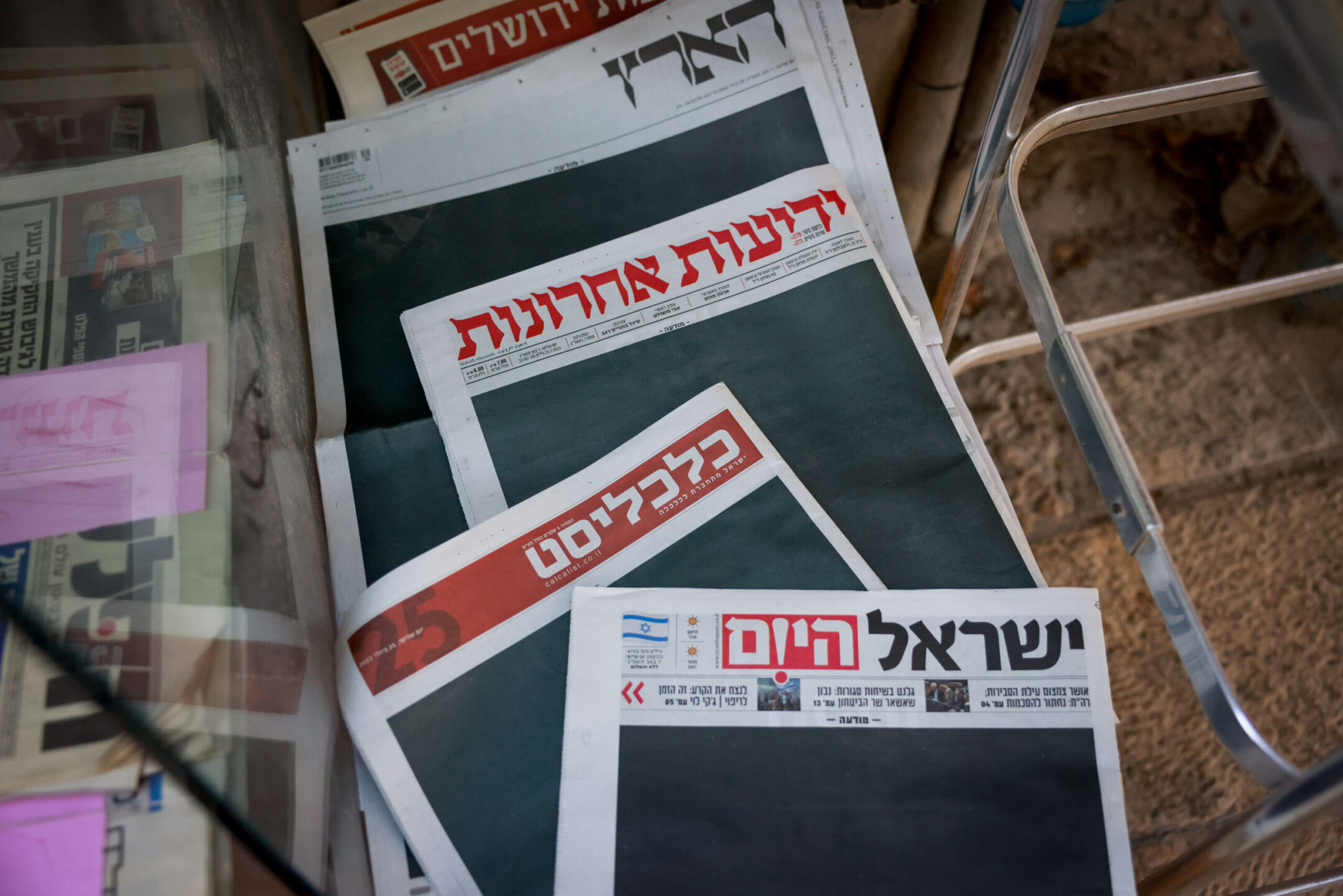
The headlines of the newspapers in Israel at a shop in Jerusalem, July 25, 2023, a day after the “reasonableness” bill passed in the Knesset. (Chaim Goldberg/Flash90)
On Tuesday morning, a group organized by employees of Israel’s tech sector bought front-page ads in several major Israeli newspapers, covering them with black rectangles in protest of the legislation. Text in the bottom corner of the rectangles read, “A dark day for Israeli democracy.” As the day went on, the Tel Aviv Stock Exchange and shekel lost value and at least one credit agency downgraded its rating of Israel: Morgan Stanley said in a release that “we move Israel sovereign credit to a ‘dislike stance.’”
The Israel Medical Association, which had set up a tent to aid protesters in Jerusalem on Monday, announced that doctors and nurses would be going on strike on Tuesday in protest of the recently passed law. In practice, the strike meant that Israel’s health care system worked on weekend hours, with emergency rooms and some other institutions operating normally. But in the afternoon, a labor court ordered the medical professionals to end the strike.
JTA has documented Jewish history in real-time for over a century. Keep our journalism strong by joining us in supporting independent, award-winning reporting.
